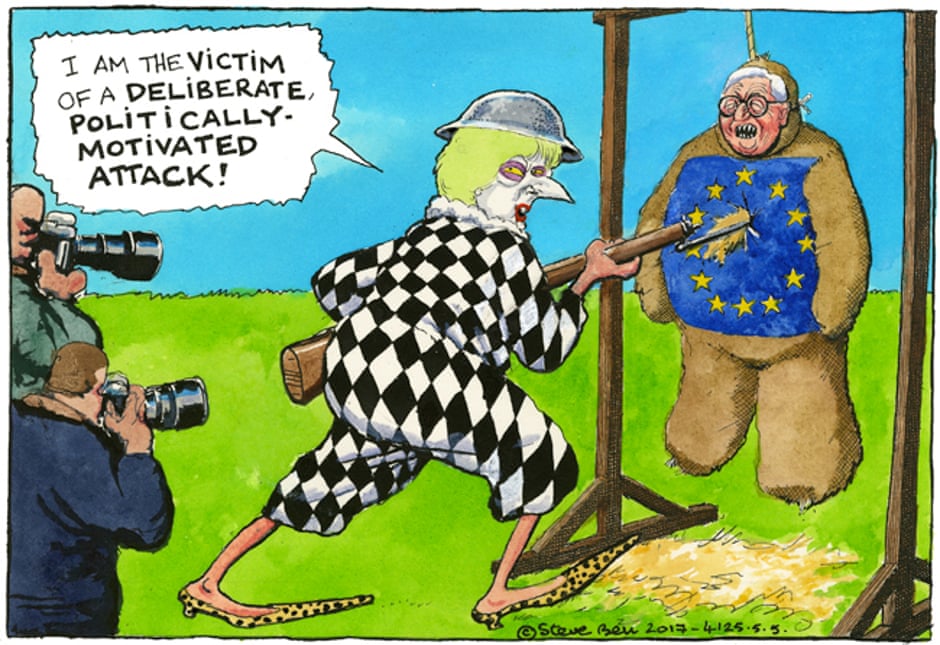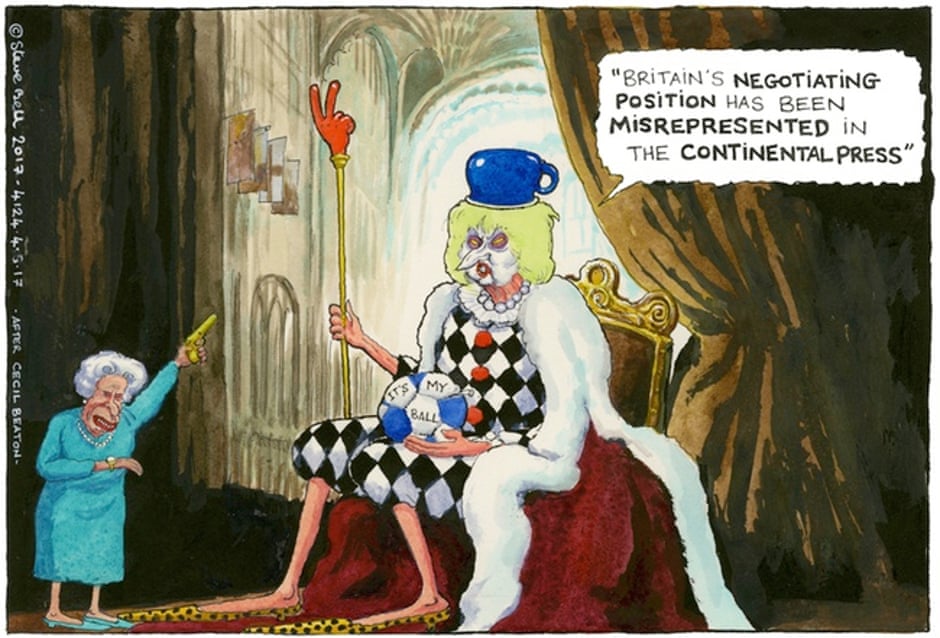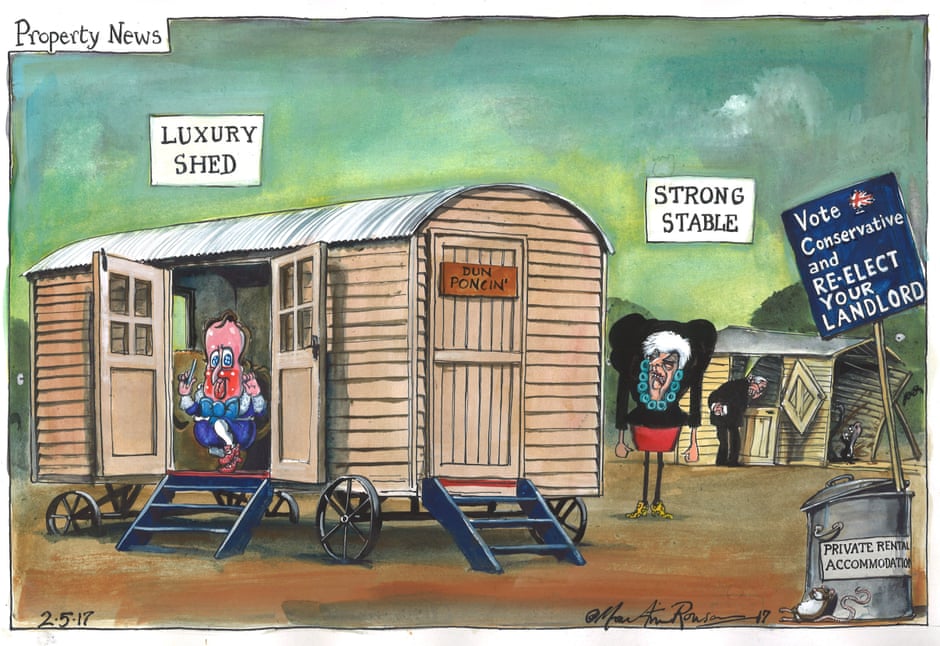Trump fits on most of these to a certain degree.Fourteen Defining
Characteristics Of Fascism
By Dr. Lawrence Britt
Source Free Inquiry.co
5-28-3
Dr. Lawrence Britt has examined the fascist regimes of Hitler (Germany), Mussolini (Italy), Franco (Spain), Suharto (Indonesia) and several Latin American regimes. Britt found 14 defining characteristics common to each:
1. Powerful and Continuing Nationalism - Fascist regimes tend to make constant use of patriotic mottos, slogans, symbols, songs, and other paraphernalia. Flags are seen everywhere, as are flag symbols on clothing and in public displays.
2. Disdain for the Recognition of Human Rights - Because of fear of enemies and the need for security, the people in fascist regimes are persuaded that human rights can be ignored in certain cases because of "need." The people tend to look the other way or even approve of torture, summary executions, assassinations, long incarcerations of prisoners, etc.
3. Identification of Enemies/Scapegoats as a Unifying Cause - The people are rallied into a unifying patriotic frenzy over the need to eliminate a perceived common threat or foe: racial , ethnic or religious minorities; liberals; communists; socialists, terrorists, etc.
4. Supremacy of the Military - Even when there are widespread
domestic problems, the military is given a disproportionate amount of government funding, and the domestic agenda is neglected. Soldiers and military service are glamorized.
5. Rampant Sexism - The governments of fascist nations tend to be almost exclusively male-dominated. Under fascist regimes, traditional gender roles are made more rigid. Divorce, abortion and homosexuality are suppressed and the state is represented as the ultimate guardian of the family institution.
6. Controlled Mass Media - Sometimes to media is directly controlled by the government, but in other cases, the media is indirectly controlled by government regulation, or sympathetic media spokespeople and executives. Censorship, especially in war time, is very common.
7. Obsession with National Security - Fear is used as a motivational tool by the government over the masses.
8. Religion and Government are Intertwined - Governments in fascist nations tend to use the most common religion in the nation as a tool to manipulate public opinion. Religious rhetoric and terminology is common from government leaders, even when the major tenets of the religion are diametrically opposed to the government's policies or actions.
9. Corporate Power is Protected - The industrial and business aristocracy of a fascist nation often are the ones who put the government leaders into power, creating a mutually beneficial business/government relationship and power elite.
10. Labor Power is Suppressed - Because the organizing power of labor is the only real threat to a fascist government, labor unions are either eliminated entirely, or are severely suppressed.
11. Disdain for Intellectuals and the Arts - Fascist nations tend to promote and tolerate open hostility to higher education, and academia. It is not uncommon for professors and other academics to be censored or even arrested. Free expression in the arts and letters is openly attacked.
12. Obsession with Crime and Punishment - Under fascist regimes, the police are given almost limitless power to enforce laws. The people are often willing to overlook police abuses and even forego civil liberties in the name of patriotism. There is often a national police force with virtually unlimited power in fascist nations.
13. Rampant Cronyism and Corruption - Fascist regimes almost always are governed by groups of friends and associates who appoint each other to government positions and use governmental power and authority to protect their friends from accountability. It is not uncommon in fascist regimes for national resources and even treasures to be appropriated or even outright stolen by government leaders.
14. Fraudulent Elections - Sometimes elections in fascist nations are a complete sham. Other times elections are manipulated by smear campaigns against or even assassination of opposition candidates, use of legislation to control voting numbers or political district boundaries, and manipulation of the media. Fascist nations also typically use their judiciaries to manipulate or control elections.
From Liberty Forum
http://www.libertyforum.org/showflat.php?Cat=&Board=news_constitution&Number=642
109&page=&view=&sb=&o=&vc=1&t=-1
Welcome to our Community
Wanting to join the rest of our members? Feel free to Sign Up today.
Sign up
Fourteen Defining
Characteristics Of Fascism
By Dr. Lawrence Britt
Source Free Inquiry.co
5-28-3
Dr. Lawrence Britt has examined the fascist regimes of Hitler (Germany), Mussolini (Italy), Franco (Spain), Suharto (Indonesia) and several Latin American regimes. Britt found 14 defining characteristics common to each:
1. Powerful and Continuing Nationalism - Fascist regimes tend to make constant use of patriotic mottos, slogans, symbols, songs, and other paraphernalia. Flags are seen everywhere, as are flag symbols on clothing and in public displays.
2. Disdain for the Recognition of Human Rights - Because of fear of enemies and the need for security, the people in fascist regimes are persuaded that human rights can be ignored in certain cases because of "need." The people tend to look the other way or even approve of torture, summary executions, assassinations, long incarcerations of prisoners, etc.
3. Identification of Enemies/Scapegoats as a Unifying Cause - The people are rallied into a unifying patriotic frenzy over the need to eliminate a perceived common threat or foe: racial , ethnic or religious minorities; liberals; communists; socialists, terrorists, etc.
4. Supremacy of the Military - Even when there are widespread
domestic problems, the military is given a disproportionate amount of government funding, and the domestic agenda is neglected. Soldiers and military service are glamorized.
5. Rampant Sexism - The governments of fascist nations tend to be almost exclusively male-dominated. Under fascist regimes, traditional gender roles are made more rigid. Divorce, abortion and homosexuality are suppressed and the state is represented as the ultimate guardian of the family institution.
6. Controlled Mass Media - Sometimes to media is directly controlled by the government, but in other cases, the media is indirectly controlled by government regulation, or sympathetic media spokespeople and executives. Censorship, especially in war time, is very common.
7. Obsession with National Security - Fear is used as a motivational tool by the government over the masses.
8. Religion and Government are Intertwined - Governments in fascist nations tend to use the most common religion in the nation as a tool to manipulate public opinion. Religious rhetoric and terminology is common from government leaders, even when the major tenets of the religion are diametrically opposed to the government's policies or actions.
9. Corporate Power is Protected - The industrial and business aristocracy of a fascist nation often are the ones who put the government leaders into power, creating a mutually beneficial business/government relationship and power elite.
10. Labor Power is Suppressed - Because the organizing power of labor is the only real threat to a fascist government, labor unions are either eliminated entirely, or are severely suppressed.
11. Disdain for Intellectuals and the Arts - Fascist nations tend to promote and tolerate open hostility to higher education, and academia. It is not uncommon for professors and other academics to be censored or even arrested. Free expression in the arts and letters is openly attacked.
12. Obsession with Crime and Punishment - Under fascist regimes, the police are given almost limitless power to enforce laws. The people are often willing to overlook police abuses and even forego civil liberties in the name of patriotism. There is often a national police force with virtually unlimited power in fascist nations.
13. Rampant Cronyism and Corruption - Fascist regimes almost always are governed by groups of friends and associates who appoint each other to government positions and use governmental power and authority to protect their friends from accountability. It is not uncommon in fascist regimes for national resources and even treasures to be appropriated or even outright stolen by government leaders.
14. Fraudulent Elections - Sometimes elections in fascist nations are a complete sham. Other times elections are manipulated by smear campaigns against or even assassination of opposition candidates, use of legislation to control voting numbers or political district boundaries, and manipulation of the media. Fascist nations also typically use their judiciaries to manipulate or control elections.
From Liberty Forum
http://www.libertyforum.org/showflat.php?Cat=&Board=news_constitution&Number=642
109&page=&view=&sb=&o=&vc=1&t=-1
According to this list, most of the world is fascist. Very general. Yikes.
You think the US is a fascist government?Trump fits on most of these to a certain degree.
Na I wouldn't give it that label, but it ticks most boxes more and some less on that list. And more than the average democracy it seems.You think the US is a fascist government?@Zeph was not able to answer this question.
I think Trump has fascist tendencies, but the U.S. government as a whole is not yet fascist.You think the US is a fascist government?@Zeph was not able to answer this question.
Fascism is a hard one to define. It takes a lot of characteritics to describe it. We've really only had a few historical examples that were really close to the general definition of the word.I think Trump has fascist tendencies, but the U.S. government as a whole is not yet fascist.
I jus't don't want some rag-tag hooligans to decide for me what it is, and at the same time suppress my right to speak about it, or against it. It is when someone else gets to decide what is right or not, providing at the same time a casus belli to act violently towards opposition. Especially when all they do is speak, or express. The civil right movement from the 60s endured this type of violence, and now it is ok?
The most dangerous groups or organizations are the ones that act with force "for the greater good". Hence my Animal Farm reference.
Fascism is driven by emotion rather than thought. It starts small, by a driven group, often feeling victimized, justfying their actions. Silencing their adversaries by force. Antifa is not yet fascist either I would guess. But the irony isn't lost.
Read the 5 stages of Fascism by Robert Paxton if you are interested in the topic. But that list you provided is really desribing most nations in the world, unless you want to be naieve about your own country. People in power are assholes and in it for themselves, let's be real about that.
I'm not agreeing with the violence from certain parts of the anti-fa protestors, but then you have to be wilfully ignorant to ignore all the legitimate examples of Nazism from the people they are protesting against. There are even examples of locals joining the anti-fa protestors because they see the Nazi salutes. Not all of the people who attended Trump rallies, and it seems especially in Berkley, were Nazi's, just as not all anti-fa protestors were violent, but defending one side while not recognising what sparked the protest seems naive to me.Fascism is a hard one to define. It takes a lot of characteritics to describe it. We've really only had a few historical examples that were really close to the general definition of the word.
I jus't don't want some rag-tag hooligans to decide for me what it is, and at the same time suppress my right to speak about it, or against it. It is when someone else gets to decide what is right or not, providing at the same time a casus belli to act violently towards opposition. Especially when all they do is speak, or express. The civil right movement from the 60s endured this type of violence, and now it is ok?
The most dangerous groups or organizations are the ones that act with force "for the greater good". Hence my Animal Farm reference.
Fascism is driven by emotion rather than thought. It starts small, by a driven group, often feeling victimized, justfying their actions. Silencing their adversaries by force. Antifa is not yet fascist either I would guess. But the irony isn't lost.
Read the 5 stages of Fascism by Robert Paxton if you are interested in the topic. But that list you provided is really desribing most nations in the world, unless you want to be naieve about your own country. People in power are assholes and in it for themselves, let's be real about that.
I've got Paxton's Anatomy of Fascism, somewhere, from my uni days, in which he expands upon his 5 stages. Lets take a quick look at his 5 stages and then his updated definition from Anatomy. From his wiki, since it easier than typing them out, here they are.
- Intellectual exploration, where disillusionment with popular democracy manifests itself in discussions of lost national vigor
- Rooting, where a fascist movement, aided by political deadlock and polarization, becomes a player on the national stage
- Arrival to power, where conservatives seeking to control rising leftist opposition invite the movement to share power
- Exercise of power, where the movement and its charismatic leader control the state in balance with state institutions such as the police and traditional elites such as the clergy and business magnates.
- Radicalization or entropy, where the state either becomes increasingly radical, as did Nazi Germany, or slips into traditional authoritarian rule, as did Fascist Italy.
1. Talks about lost national vigor which was central to Trump's campaign, for that you just have to look at his slogan Make America Great Again. It embodies this stage.
2. I think it's fair to say that the political polarization has led to this and that Trump is a player on the national stage. The Republicans had just spent the previous 8 years being the party of No, blocking and obstructing anything they could. Blocking 82 presidential nominees, when there had been a total of 86 blocks of all previous presidents. As well as 500 filibustered bills.
3. Many Never Trumpers are firmly in the Trump camp now, and that started happening around the time of the Republican convention. Paul Ryan, Mitch McConnell, Ted Cruz, Reince Preibus all kissed the ring.
4. Trump has made a lot of rhetoric about strengthening the police state, as well as inviting traditional elite, such as wall street bankers and the clergy(Pence), into his administration.
5. Is a work in progress. Trump blamed the checks and balances of the constitution for his poor performance in the first 100 days. Which Preibus expanded on saying there might need to be an amendment, or two, specially about libel laws, so they can sue the press over stories they don't like. The filibuster has already been removed. He's also attacked the press stoking existing concerns about them, although they don't help themselves.
So Trump definitely fits within Paxton's 5 stages. Here's his upgraded definition from Anatomy.
Fascism may be defined as a form of political behavior marked by obsessive preoccupation with community decline, humiliation, or victim-hood and by compensatory cults of unity, energy, and purity, in which a mass-based party of committed nationalist militants, working in uneasy but effective collaboration with traditional elites, abandons democratic liberties and pursues with redemptive violence and without ethical or legal restraints goals of internal cleansing and external expansion.
Trump is well on the way with both definitions. The other fourteen characteristics are actually more defining than Paxton's, and some disagree with Paxton's assertion that there has to be external expansion for a state to be fascist. After all, Franco's Spain did not pursue external expansion, but is definitely a fascist state. To say that most nations fit within those fourteen characteristics is just plainly wrong.
As I said, Trump himself has displayed fascist tendencies with his rhetoric. If you fail to see it that is because of an ignorance of what fascist rhetoric is, which leads to calling anti-fa protesters fascists when they aren't.
Last edited:






